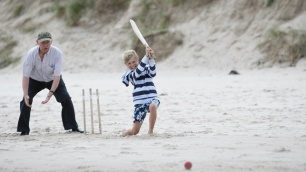In August a member of the Blue Gym team, Dr Sabine Pahl presented a selection of research relevant to the Blue Gym programme at the International Congress of Psychology in Cape Town, South Africa.
The talk was part of a symposium on the psychological benefits of natural environments, a series which has run for the last 14 years. Dr Pahl first argued the importance of a shift in focus from Green Spaces to Blue Spaces (including coastal and inland waterways) by summarising recent work at the European Centre for Environment & Human Health.
Recent studies have shown that people in England report better health the closer they live to the coast and visitors to the coast report being calmer and more relaxed than visitors to parks or the countryside. Dr Pahl also presented the results of a field study by PhD student Kayleigh Wyles, surveying visitors to rocky shores in Devon. Finally, preliminary results were reported from a study led by Dr Karin Tanja-Dijkstra, using virtual reality environments in pain and fear arousing contexts.
The take home message was that blue space environments are important for psychological restoration and mental well-being and that these insights could have important implications for policies aimed at promoting and protecting marine and freshwater habitats.


